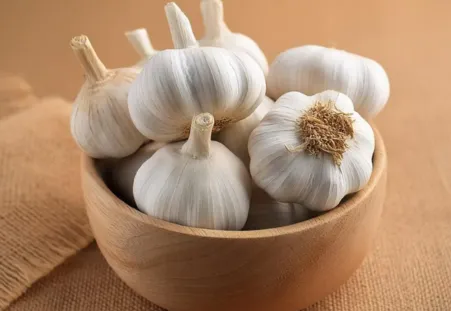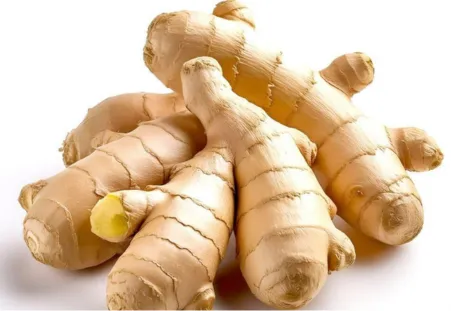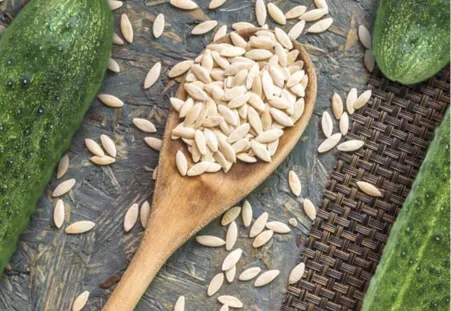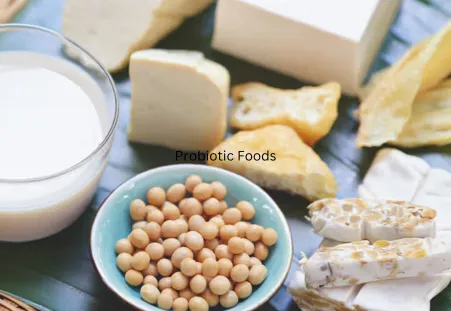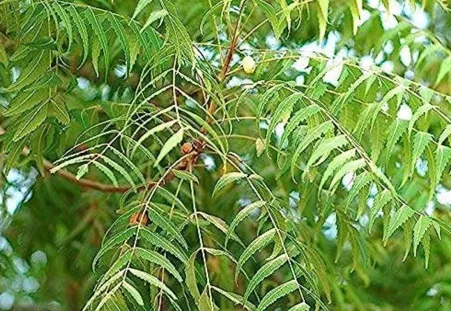A parasitic infection is an unwelcome condition, yet it can occur when parasites infiltrate our bodies through contaminated food or water. These parasites can live in our bodies, leading to various uncomfortable symptoms and impacting our immune system and most of the time we often ignore them.
But there’s no need to panic. In this page, we will look at 13 foods that kill parasites in humans that research suggests may help the body fight against parasites. These foods are not only tasty and nutritious but could also boost your body’s natural defenses.
Table of Contents
ToggleCommon Symptoms of Parasite Infection
Some individuals may remain asymptomatic for years despite having intestinal worms, while others may begin to show symptoms as the infestation progresses. Typical symptoms associated with intestinal worms can include:
- Abdominal pain
- Diarrhea
- Nausea and vomiting
- Abdominal bloating
- Unexplained weight loss
- Fatigue
- Tenderness in the abdomen.
Those suffering from intestinal worm infestations might also experience dysentery, which is marked by the presence of blood in the stool. Additionally, these parasites can lead to itching and rashes around the rectal area, and in women, this may extend to the vulva. The expulsion of worms during bowel movements is another potential indicator of an infestation.
Causes of Parasitic Infections
Worms can enter the human intestines through various pathways, with direct ingestion being the most prevalent method. Factors contributing to intestinal worm infestations include:
- Eating raw or undercooked meat from infected animals.
- Drinking contaminated water.
- Handling fecal matter or contaminated soil.
- Inadequate personal hygiene and poor environmental sanitation.
Once the parasite enters the body, it can migrate to the intestines, where it reproduces and increases in number. Symptoms typically emerge as the worm population grows.
Common Parasites That Affect Humans
Protozoa are unicellular organisms capable of causing various infections, including Giardia, Cryptosporidium, and Entamoeba histolytica. These parasites are usually transmitted via the fecal-oral route or through arthropod vectors, such as mosquito bites.
Giardia can lead to gastrointestinal issues, including diarrhea, abdominal discomfort, and nausea. Cryptosporidium is responsible for a diarrheal disease known as cryptosporidiosis, which can be particularly severe in individuals with compromised immune systems.
Helminths are multicellular worm-like parasites that encompass roundworms, flukes, and tapeworms. Ascaris, a type of roundworm, ranks among the most prevalent helminth infections globally, primarily spreading through contaminated soil, often linked to inadequate sanitation.
The impact of parasites on individuals can vary significantly, influenced by factors such as the specific type of parasite, the person’s immune response, and the infection’s severity. Some individuals may experience mild symptoms or remain asymptomatic, particularly if they maintain a healthy microbiome and a balanced relationship with the parasites.
It is crucial to recognize that while these parasites can lead to serious health complications, their prevalence and effects differ across various regions and populations. Developing nations with limited sanitation and hygiene resources often report higher rates of parasitic infections. Conversely, in developed countries like the United States, the overall incidence may be lower, yet cases still arise and can contribute to chronic health issues.
13 Foods That Kill Parasites in Humans
Numerous at-home remedies exist for addressing stomach worms, which can assist in eliminating these parasites from the intestines. Here is the list of the 13 best foods that kill parasites in humans:
1) Pumpkin Seeds
Pumpkin seeds are recognized as a highly effective anti-parasitic food. They are often utilized in the treatment of parasitic infections due to their content of tetracyclic triterpenes. Additionally, pumpkin seeds are abundant in cucurbitins, which can immobilize worms, making it more difficult for them to adhere to the intestinal walls. This facilitates their expulsion from the body during bowel movements.
2) European Barberry
European barberry, scientifically known as Berberis Vulgaris, is an herb that contains berberine, a compound recognized for its ability to combat parasites. Research has demonstrated that berberine can effectively reduce parasitic infections. The anti-tapeworm effects of berberine from barberry were first documented in a 2014 study published in the Iranian Journal of Parasitology.
3) Pineapple
Bromelain, an enzyme predominantly found in the core of pineapples, enhances digestion and has antiparasitic properties. Studies indicate that pineapple juice can lower the levels of pro-inflammatory cytokines, which are responsible for inflammation in the colon. Bromelain’s capacity to break down protein-rich foods makes it an effective ally against intestinal parasites, as it can eliminate worms. Regular consumption of pineapple can bolster the immune system, equipping it to fend off and eradicate parasites.
4) Unripe Papaya & Papaya Seeds
Unripe papaya serves as a powerful remedy for intestinal worms. Both the fruit and its seeds possess anti-amoebic and anthelmintic properties, facilitating the removal of intestinal parasites without negative side effects. To maximize its effectiveness, it is advisable to extract the juice from the papaya and mix it with honey. This mixture should be consumed first thing in the morning. For optimal results, it is recommended to maintain this regimen for at least two consecutive days.
5) Garlic
Garlic is recognized for its ability to stimulate appetite, enhance immunity, reduce inflammation, and eliminate parasites. The sulfur compounds abundant in garlic are effective in eradicating harmful bacteria and preventing blood clot formation. Given that low stomach acid levels are associated with bacterial and yeast overgrowth in the gut, garlic’s role in promoting acid production is particularly beneficial. Research has identified garlic as a practical preventive measure and a promising treatment for cryptosporidial infections.
6) Ginger
Similar to garlic, ginger promotes the production of stomach acid, which aids in neutralizing parasites and preventing infections. Beyond its digestive benefits, ginger enhances blood circulation, making it one of the most effective foods for combating parasites. Studies have explored ginger’s anti-parasitic properties, particularly against drug-resistant infections, showing its anti-protozoal effects against Toxoplasma gondii, Giardia lamblia, Blastocystis spp., and Trypanosoma spp.
7) Cucumber Seeds
Cucumber seeds may assist in eliminating tapeworms from your digestive tract due to their anti-parasitic properties. Therefore, it is advisable to incorporate cucumber seeds into your diet as a precaution, even if you are not currently experiencing a parasitic infection. The enzymes present in cucumbers are known to combat tapeworms effectively. However, if you suspect a tapeworm infection, consulting a qualified gastroenterologist is recommended.
8) Oregano Oil
Oregano oil has demonstrated efficacy against various parasites, including Blastocystis hominis, Entamoeba hartmanni, and Endolimax nana. Research indicates that oregano oil may also serve as a bioactive agent to mitigate infections caused by Cryptosporidium parvum, a protozoan parasite responsible for diarrhea in children.
9) Probiotic Foods
Research indicates that probiotics may serve as a beneficial adjunct therapy for individuals dealing with gastrointestinal parasites. The beneficial microorganisms found in probiotics can aid in preserving a healthy bacterial balance within the gut. Nevertheless, it is advisable to consult a gastroenterologist if you suspect a parasitic infection. Notably, Saccharomyces boulardii has been identified in multiple studies as an effective anti-parasitic agent, particularly in the treatment of giardiasis.
10) Coconut
Both the flesh and oil of coconut have demonstrated anti-parasitic properties. Coconut possesses antibacterial and antiviral characteristics that may assist in eliminating pinworm and tapeworm infections. This treatment involves a two-step process: consume a teaspoon of pure coconut oil each morning, and before bedtime, apply a small amount of coconut oil to the affected area.
11) Neem
Neem is renowned for its antimicrobial characteristics. Neem paste has demonstrated effectiveness against intestinal worms and should be consumed mixed with water each morning. This regimen should be maintained for several days to assess its impact. Research indicates that feeding neem kernel dust to larvae resulted in their death within two days.
Preventing intestinal parasites can be achieved through proper hygiene practices. It is essential to wash all raw foods before cooking. Refrain from consuming cut and exposed street food, and ensure to wash your hands before meals or after returning home. Avoid raw foods and ensure that meat, particularly pork, is thoroughly cooked before consumption. Always opt for filtered water and seek medical advice at the onset of any potential parasite infection symptoms.
12) Wormwood extract
An extract derived from the sweet wormwood shrub has shown efficacy against adult tapeworms and their eggs in a mouse model. Consequently, the compounds present in the sweet wormwood plant are utilized in the development of various pharmaceuticals aimed at treating parasitic infections.
13) Pomegranates
Pomegranates are abundant in antioxidants and have been traditionally recognized for their potential anti-parasitic effects. Some research has indicated that pomegranate extract may exhibit activity against specific parasites. Consuming fresh pomegranates or drinking pomegranate juice may offer certain health benefits.
Also Read:- 13 Benefits Of Applying Oil Near Belly Button
Conclusion
The effects of parasitic infections on health can be considerable, leading to a range of distressing symptoms and compromising the immune system. Thankfully, certain foods may aid in bolstering the body’s defenses against these parasites.
Adding these foods to your diet can serve as a natural method to enhance your body’s capacity to combat parasitic threats. Nonetheless, it is crucial to recognize that the severity of parasitic infections can differ, necessitating tailored treatment approaches. Thus, consulting with a healthcare professional, particularly a functional medicine specialist, is advisable for personalized advice and treatment alternatives.
Know More:- How To Avoid Pregnancy After Sex Naturally






